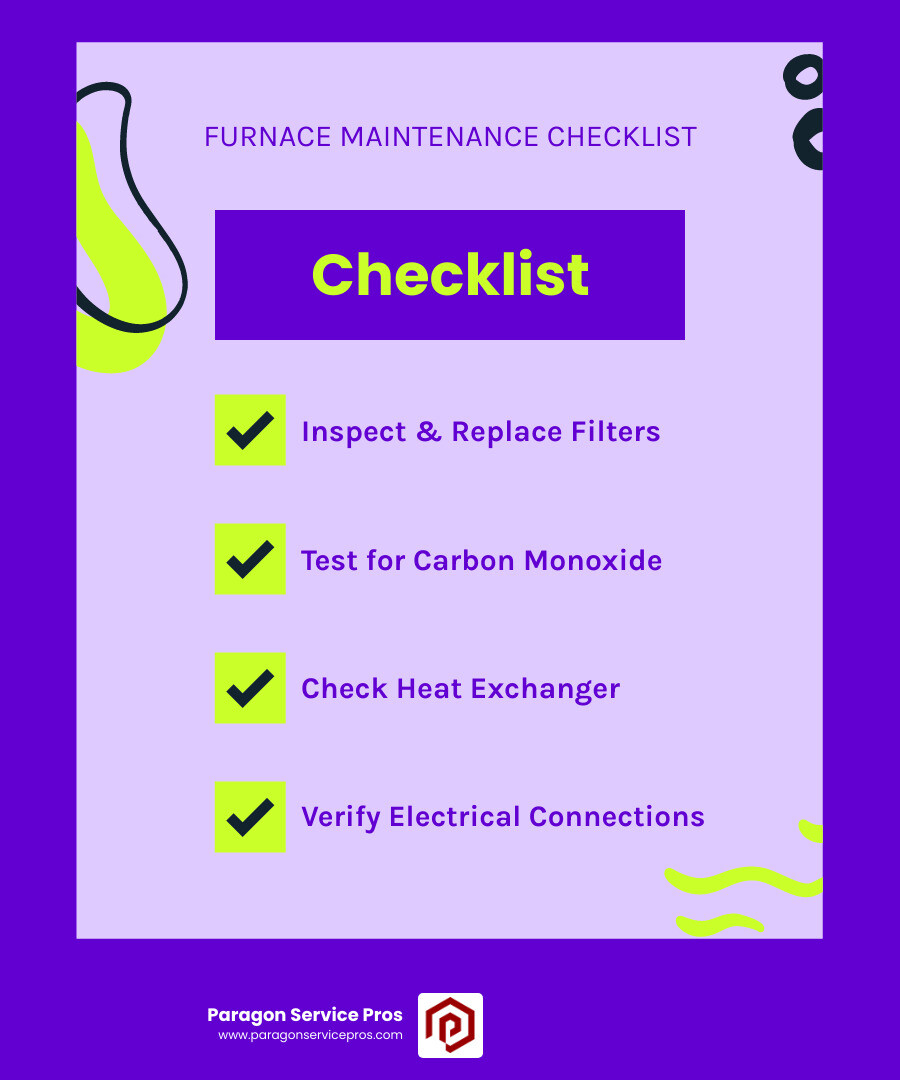Essential Maintenance Tips for Your Heating and Cooling System
Keep your heating and cooling system running with these expert HVAC maintenance tips to improve energy efficiency, prevent repairs, and extend system life

Your heating and cooling system works hard all year to keep your home comfortable, but without regular maintenance, it might lose efficiency, break down unexpectedly, or wear out long before it should. Consistent care keeps your system running smoothly, helps you save on energy bills, and extends the life of your equipment.
This blog shares practical, seasonal tips to help you care for your HVAC system throughout the year. Whether you're preparing for summer heat or winter chills, these simple steps will improve efficiency, increase reliability, and keep your home feeling the way it should.
Change your air filters regularly

Replace your HVAC air filter every one to three months to maintain strong airflow, lower energy use, and reduce strain on your system. Homes with pets, allergies, or heavy system use may need more frequent changes.
Dirty filters force your system to work harder, leading to uneven temperatures, dust buildup, and higher utility bills. If you notice weak airflow, visible dust, or musty smells, it’s time for a replacement.
Clean filters improve efficiency, protect your equipment, and help your home stay comfortable and healthy throughout the year.
Keep vents and registers clean and unobstructed
Clean and clear vents help your HVAC system maintain strong airflow, improve comfort, and lower energy use. Dust, pet hair, and debris collect quickly, so vacuum vents regularly and wash covers with warm, soapy water when needed.
Make sure furniture, rugs, or curtains don’t block registers. Even partial obstructions force your system to work harder, leading to uneven temperatures and higher utility bills.
When air flows freely, your system heats and cools more efficiently, responds better to thermostat changes, and experiences less strain. Regular cleaning and thoughtful placement around vents can boost comfort and system performance year-round.
Schedule seasonal tune-ups
Schedule professional tune-ups in spring and fall to keep your HVAC system running at peak performance. These seasonal checkups prepare your system for extreme temperatures and help prevent breakdowns when you need heating or cooling the most.
In spring, technicians focus on your air conditioner, checking refrigerant levels, cleaning coils, and testing electrical components. In fall, they inspect burners, clean heating elements, and ensure safe operation.
Tune-ups catch small issues before they become costly repairs and help extend the life of your system. Regular professional HVAC maintenance also supports warranty protection and ensures reliable comfort year-round.
Clean around the outdoor unit
Your outdoor HVAC unit needs clear space and proper airflow to function efficiently. Leaves, dirt, and debris can block airflow and force the system to work harder, increasing energy use and wear.
Turn off the power, then remove debris from the top and sides. Use a soft brush or gentle water spray to rinse off dirt without damaging the fins. Avoid high-pressure tools that can bend components.
Keep at least two to three feet of open space around the unit. Trim shrubs, pull weeds, and remove any nearby clutter. While cleaning, check for bent fins, rust, or loose wires. If you spot damage, call a licensed HVAC technician.
Regularly cleaning the area around your unit helps prevent overheating and keeps your system running smoothly through every season.
Check your thermostat settings

Your thermostat controls how your HVAC system heats and cools your home. If it reads the temperature incorrectly or follows an inefficient schedule, your system works harder, wasting energy and reducing comfort.
Start by checking its accuracy. Compare the reading to a separate indoor thermometer. If it’s off, recalibrate or replace it. Then adjust your settings based on time of day and season — lower in winter, higher in summer — to ease the load on your system and save energy.
If you still use a manual model, consider upgrading to a smart thermostat. These devices learn your habits, adjust automatically, and give you remote control and energy insights. A well-calibrated and properly programmed thermostat helps your system run more efficiently and keeps your home consistently comfortable.
Inspect and maintain ductwork
Your ductwork moves heated and cooled air throughout your home. When it’s sealed and intact, it delivers consistent comfort and supports system efficiency. Leaks, gaps, or disconnected sections force your HVAC system to work harder, driving up energy costs and creating uneven temperatures.
Inspect visible ducts in attics, basements, or crawl spaces. Look for peeling tape, loose joints, or holes where air could escape. If certain rooms stay too warm or too cold, damaged ductwork may be the cause.
In older homes, consider professional duct cleaning. Built-up dust and debris can restrict airflow and reduce air quality. Clean, sealed ducts help your system work more efficiently, lower utility bills, and improve indoor comfort year-round.
Monitor unusual sounds or odors
Your HVAC system should run quietly and without strange smells. If you hear rattling, grinding, or buzzing, or notice musty or burning odors, something likely needs attention.
Rattling may point to loose parts or debris, grinding often signals motor issues, and buzzing could mean electrical trouble. Musty smells suggest mold, while burning odors may come from overheating components. A rotten egg smell could indicate a gas leak and calls for immediate professional help.
Call a licensed HVAC technician if you notice any of these warning signs. Addressing small issues early prevents bigger repairs, protects your equipment, and keeps your system operating safely.
Protect your system during extreme weather
Extreme weather can strain your HVAC system, but a few simple steps help prevent damage and keep it running efficiently year-round.
If you use a central AC unit, cover it in winter only if your HVAC technician recommends it. Use a breathable, approved cover to avoid trapping moisture that can cause rust. Clear away snow and ice after storms for heat pumps to maintain airflow. Never chip ice with sharp tools—use warm water or gentle methods instead.
Check refrigerant lines for missing or damaged insulation. Proper insulation prevents energy loss and helps your system maintain consistent performance during extreme heat or cold.
Seasonal upkeep protects your equipment, extends its lifespan, and keeps your home comfortable in every season.
Know when to call for professional help
Some HVAC issues go beyond DIY fixes. If your system won’t turn on, makes loud noises, leaks refrigerant, or trips the breaker, stop troubleshooting and call a licensed technician.
Certified professionals have the tools and training to handle complex repairs safely and correctly. They can spot hidden problems, ensure your system runs efficiently, and help prevent further damage.
Regular service also protects your warranty. Most manufacturers require professional HVAC maintenance to keep coverage valid. When in doubt, trust an expert to protect your comfort and your investment.
Keep your heating and cooling system in tip-top shape with Paragon Service Pros
Taking care of your heating and cooling system doesn’t have to be complicated, but it does make a big difference. Regular maintenance improves efficiency, prevents breakdowns, and extends the life of your equipment.
When you need expert professional HVAC maintenance, contact Paragon Service Pros. Our experienced technicians provide honest, reliable service to keep your home comfortable year-round. Schedule your seasonal tune-up today and experience the Paragon difference.
Customer Testimonials
Our customers consistently praise our fast response times, honest communication, and the dependable results they can feel in their home.









.svg)

